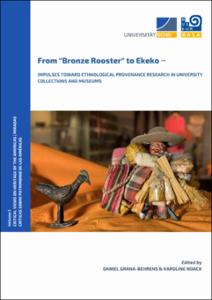BASA-Museum (Bonner Amerikas-Sammlung): Critical Views on Heritage of the Americas
The aim of this series is to create a multivocal platform that brings critical views of heritage constructions and processes in the Americas and other regions of the so-called Global South into dialogue with each other, in all their complexity and diversity. Drawing on a holistic approach to perspectives of diverse stakeholders in heritage, it will illustrate the ambiguous meanings, negotiations and contradictions that linger around this concept. It will further bring them into critical discussion with existing and dominant theories, institutions and practices in order to challenge and deconstruct them from a postcolonial point of view. This discussion may include epistemic and ontological understanding of heritage, as well as national and international legal norms and systems for protecting heritage—phenomena that have been emerging alongside the rise of modern nation-states and are dominated by Western value systems. Certainly, heritage cannot be understood as a clearly defined or closed concept. Moreover, discourses taking place between the multiple agencies involved are diverse and often contradictory, and they may cause conflicts between different interest groups. Thus, narratives of non-academic actors and newly gained knowledge from the field of heritage must be considered because they contribute to a deeper understanding of concepts of heritage. Indigenous groups and other communities have developed diverse practices, based on indigenous and local knowledge systems, to ‘safeguard’, manage and keep their heritage alive. During the last two years, the debate concerning the return of material and human remains from European museums – located in states from the so-called Global North – to their source communities and groups – mostly situated in the so-called Global South – has entered the political stage. The debate is an important illustration of how heritage is globally entangled in very complex processes that encompass the past, present and future. Without a doubt, the first step towards truly collaborative practices concerning heritage must be to restore the agency of marginalized stakeholders and communities.





